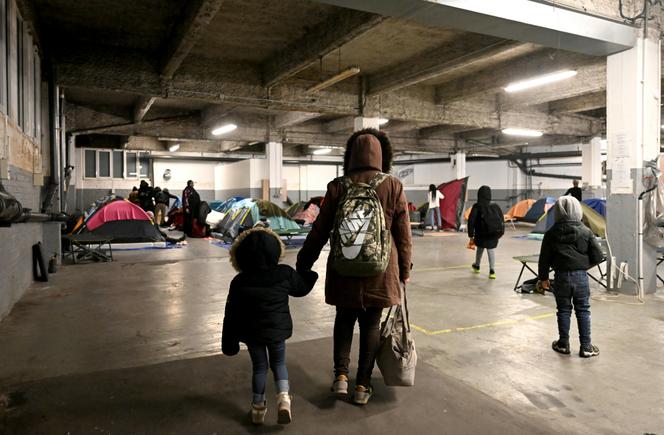

The number of homeless children in France is rising, and the French government is called upon to act

A new record has been set: at least 2,822 children are homeless in France, including nearly 700 under the age of 3, according to numbers published on Tuesday, October 17 by the Collectif des Associations Unies, Jamais Sans Toit, UNICEF France and the FCPE. This is 42% more than at the end of August, and 41% more than a year ago. And this is only a glimpse of reality since it only counts the number of children whose parents managed to contact the 115 emergency number on October 2, without getting into a shelter. But many haven't tried, or don't try anymore.
In the Rhône region (southeastern France), the 115 was only able to accommodate three of the 94 "family" people – in other words, adults and accompanying children – to whom it responded that day. These numbers are well below the 311 homeless children listed in the Lyon metropolitan area by the parent-teacher collective Jamais Sans Toit.
"The 115 teams tell families that there's no point in calling every day because there are so few places available. In our school, for the last three weeks, we've been taking in a family whose youngest child has just been born, and who are just starting to be given a room for the night in a hotel, but not every night," said Manon Luquet, FCPE parent representative at elementary school Richomme in Paris's 18th arrondissement.
At least 13 schools are occupied in Paris, Montpellier (southern France), Toulouse (southwestern France), Grenoble, Saint-Etienne, Villeurbanne, and especially Lyon (eastern France), where six schools shelter homeless students and their families at night. "In previous years, the occupations began in November when, with the cold weather, more homeless parents come forward," explained Raphaël Vulliez, of the Jamais Sans Toit collective. "But there were already so many people with no other option..."
"The numbers are soaring, it's very worrisome. The state was already breaking the law every night by not sheltering all vulnerable people. And now, it can no longer shelter the most vulnerable of the vulnerable, namely children," observed Manuel Domergue, spokesperson for the Collectif des Associations Unies and director of studies at the Fondation Abbé Pierre. How does he explain this increase, even though the government has raised emergency accommodation to a record level in winter 2023, with 205,000 places?
"Places have been closed since then, and families are being put back on the streets. While the accommodation system has been under strain since the arrival of the Ukrainians, migratory flows are ongoing," said Domergue. "Added to this are the effects of Covid-19, inflation and the lack of social housing creation and allocation. And the policy of evictions, particularly from squats and shanty towns, seems to be quite strong."
You have 46.37% of this article left to read. The rest is for subscribers only.
